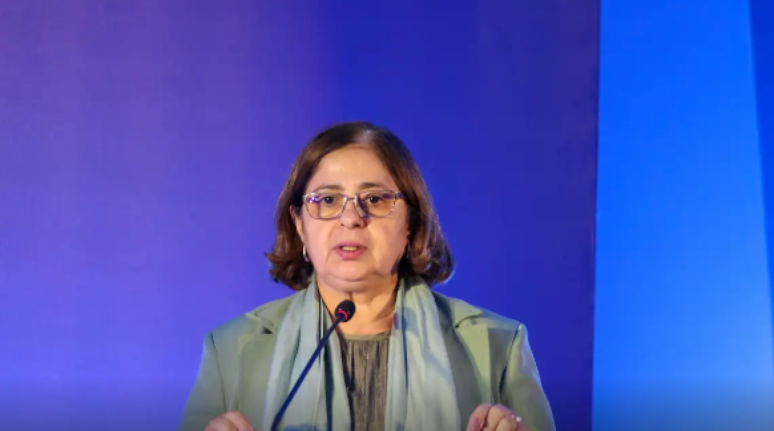The proposal limits the weekly workload to 36 hours
The Minister of Women, Cida Gonçalves, defended, this Thursday (14), that the end of the 6×1 working hours, in which you work six days a week and only take one day off, will benefit Brazilian women. “For women it will be an advantage, it will mean having more time to take care of themselves, prepare or even take care of what they want,” the minister told Agência Brasil.
The proposed Constitutional Amendment (PEC) limiting weekly working hours to 36 hours has become known as PEC 6×1. Authored by MP Erika Hilton (PSOL-SP), the project was presented to the Federal Chamber on 1 May this year. To be approved it requires the vote of 308 of the 513 parliamentarians, in two rounds of voting.
-r1ix1llyaz3r.jpg)
7 lies they teach women for life
“I think it is an important debate for Brazil, which must be mature, advanced. I think it’s important to say that the [PEC] 6×1 will really benefit women. We approved the National Assistance Policy in the House, it will go to the Senate. If we combine the two, I think it will be very important so that we can develop women’s appreciation of paid and unpaid work and the use of their time,” defended the minister.
On Tuesday (12th) the National Assistance Policy was approved in the Chamber of Deputies, which approved the replacement of bill 2762/24. The text now passes to the Senate.
The policy, based on a diagnosis made by a working group, shows the responsibility of the family, especially for black girls and women and those from rural territories and urban suburbs, and underlines the absence of public policies and the presence of the State.
“The Policy of Care ensures that the State and society can take responsibility for a territory that today is the sole and exclusive responsibility of women. It means thinking about public policies, strategies, thinking about community laundries, about senior centers, about various policies so that women have space to take care of themselves and think about other alternatives for their lives,” she said.
Equal pay
The minister participated this Thursday, at the G20 Social, in the activity Overcoming inequalities between men and women: the importance of the law on equal pay.
Enacted in 2023, the Equal Pay Law aims to ensure equal pay for women and men when performing the same function or for work of equal value. To this end, the law provides for transparency and remuneration mechanisms that companies must comply with, greater supervision and the application of administrative sanctions.
In Brazil, female workers still earn 20.7% less than men in 50,692 companies with 100 or more employees. The information comes from the 2nd Report on salary transparency and remuneration criteria. If only black workers are considered, the wage gap increases. Overall they earn half (50.2%) the wages of non-Black men.
According to Cida Gonçalves, the law is facing more than 400 legal challenges. “We cannot give up equality under any circumstances. We cannot lose the Equal Pay Act in this country. We must do everything possible and impossible in the streets, in the public debate, we must transform the fight for equality into a national potential so as not to be defeated. If we lose, we will lose all the other results we have, we must make this a priority,” he said.
For the national secretary for Women’s Affairs of the Nova Central Sindical de Trabalhadores, Sonia Maria Zerino, who also participated in the activity, it is necessary to ensure the implementation of the law. “We won the law, but we need to ensure it is enforced. It is everyone’s job here to see if it is implemented in our companies and to fight to ensure that this law is respected,” he defended. “May we be multipliers, demonstrating that the law exists and inspectors too,” he added.
Program director of the Executive Secretariat of the Ministry of Labor and Employment, Luciana Vasconcelos Nakamura, highlighted the government’s actions aimed at equal pay, highlighting the National Plan for Pay and Employment Equality between Women and Men, launched in September.
With a projected federal government budget of R$17 billion, the plan includes actions aimed at increasing and retaining women in the labor market, promotion to management and management positions; and also, address discrimination in the workplace. “We are convinced and certain that we are on the right path, that the actions implemented by the government will significantly contribute to reducing wage inequality in Brazil,” said the director.
Source: Terra
Rose James is a Gossipify movie and series reviewer known for her in-depth analysis and unique perspective on the latest releases. With a background in film studies, she provides engaging and informative reviews, and keeps readers up to date with industry trends and emerging talents.




![Tomorrow Belongs to Us: What’s in store for Wednesday 29 October 2025 episode 2063 [SPOILERS] Tomorrow Belongs to Us: What’s in store for Wednesday 29 October 2025 episode 2063 [SPOILERS]](https://fr.web.img2.acsta.net/img/bd/91/bd91cdd6caf823af3b0287cd39a943a5.jpg)

